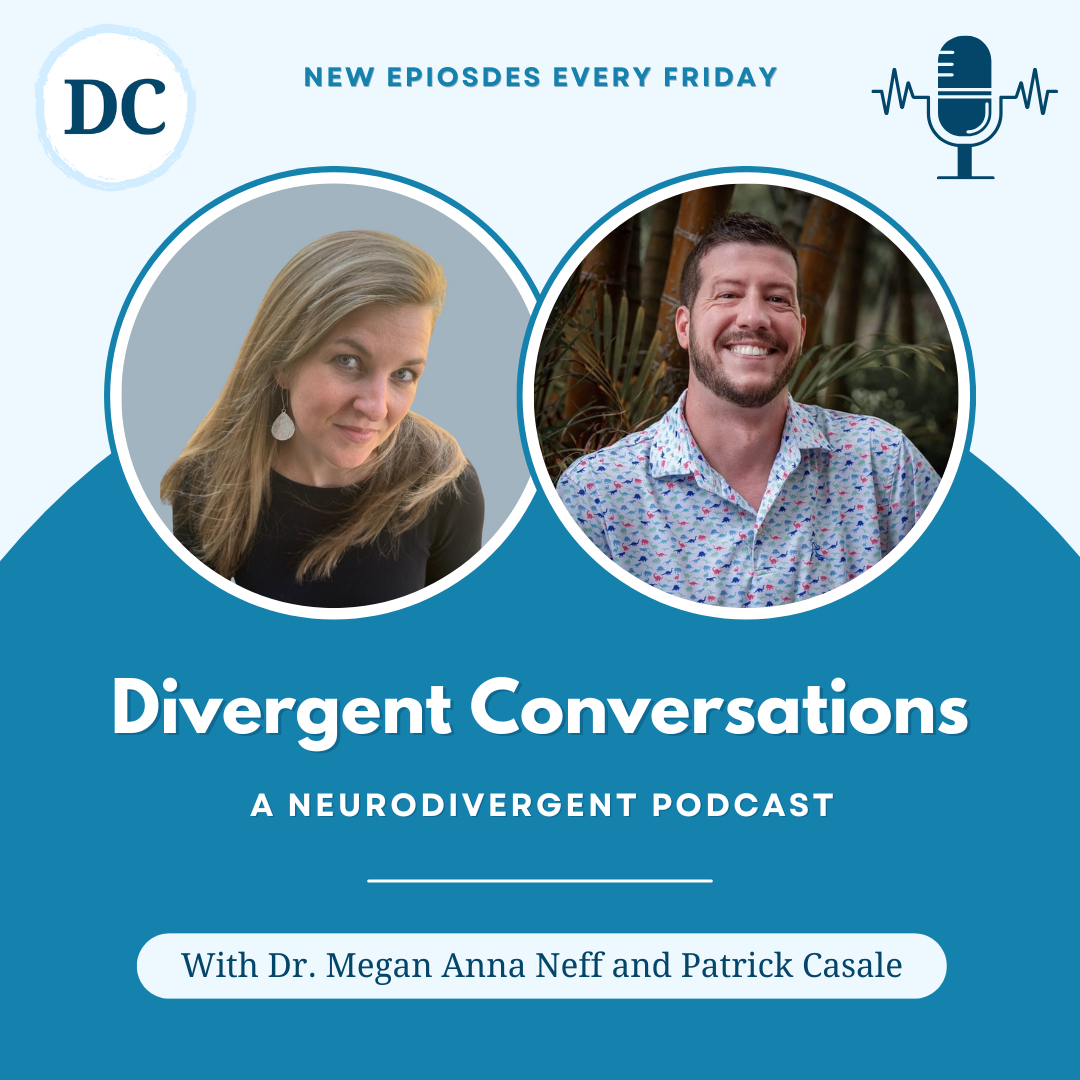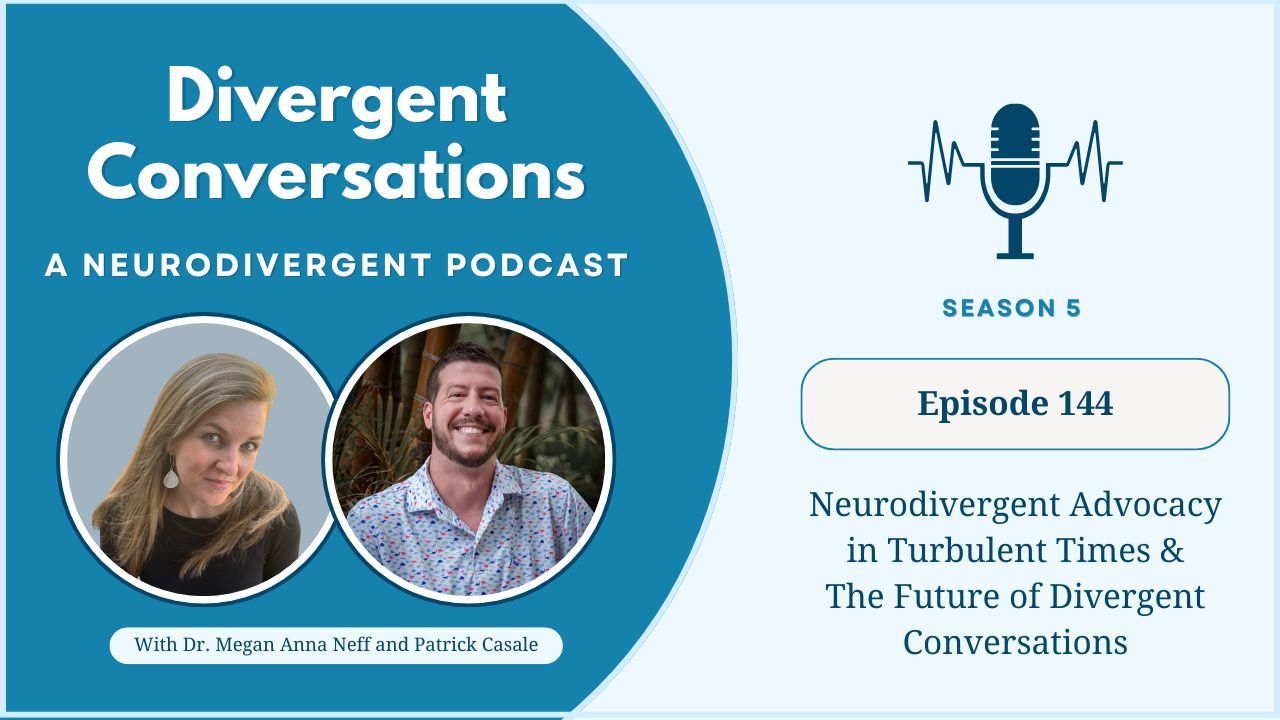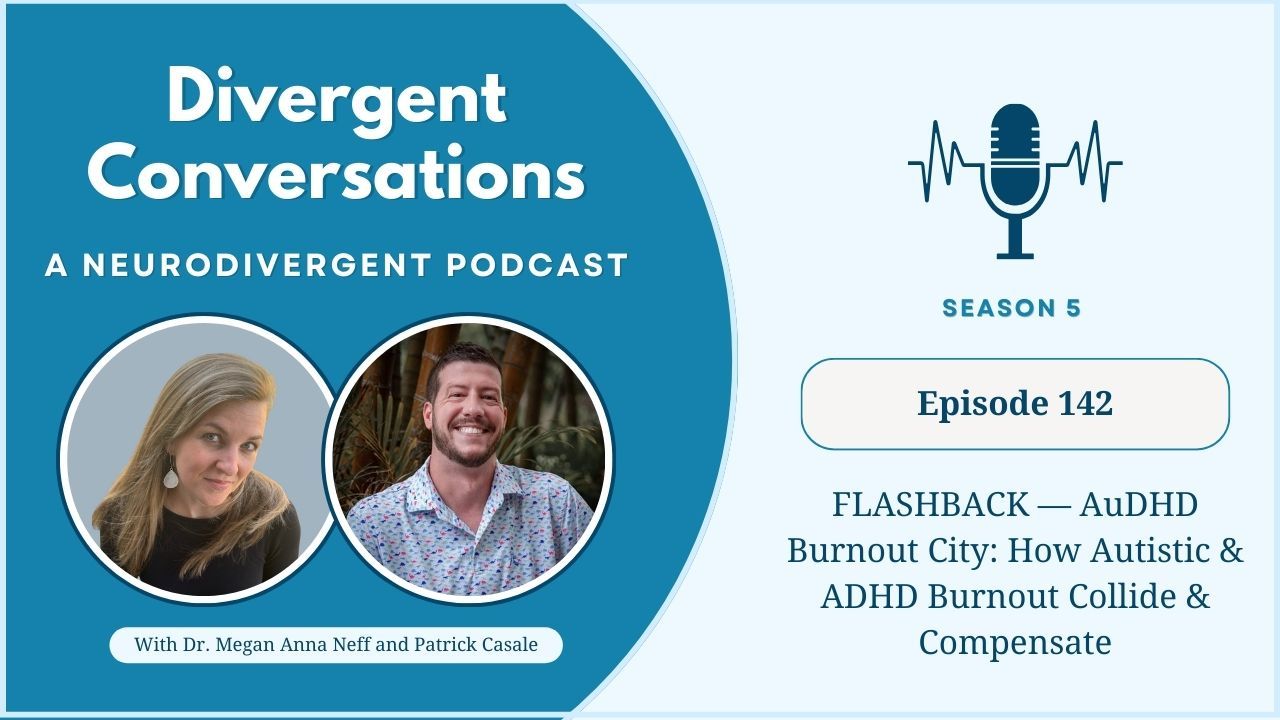
Welcome To Divergent Conversations Podcast
Explore new perspectives and engage in thought-provoking discussions with Dr. Megan Neff and Patrick Casale who are neurodivergent therapists in a neurotypical world.
Listen To All EpisodesDiscovering the Voices Behind the Mic: A Look into Their Life
Dr. Megan Neff and Patrick Casale are two neurodivergent therapists in a neurotypical world. During this podcast, they’ll talk about their own personal experiences as Autistic-ADHDers. They will reflect on their lived experience as AuDHD mental health professionals, and entrepreneurs, as well as offer clinical guidance, and support. Episodes will be conversational in nature, and they’ll interview other ND Folx to amplify the voices of other neurodivergent advocates and individuals as they share their authentic stories. New episodes will come out weekly, on all major platforms. Megan told Patrick, ”I’ll bring the chaos, You organize it.” This perfectly sums up their working relationship and friendship. Reflections of two neurodivergent clinicians. Raw, Vulnerable, Affirmative As Hell.
Listen to All Episodes
A Special Thank You to Our Current Sponsors

Jane APP
Jane is a clinic management software and EMR designed to be an extra set of helping hands in your health and wellness business. Available online and on any device, Jane has branded online booking, scheduling, insurance billing, customizable documentation templates and online forms, integrated payments, telehealth, and more — wrapped up in one beautiful package that even your patients/clients will love. Backed by our unlimited human support available by phone, email, and chat (even on Saturdays!), Jane is here to help you get back to the work you love. Get 2 months off a new subscription with code DCPOD.

Landmark College
Landmark College is the world's first accredited college designed exclusively for students who learn differently. Landmark, located in Putney, Vermont, offers courses in person and online, awarding associate and bachelor's degrees, and offering pre-college, gap year, and professional development programs for educators who work with neurodivergent students. With a student-to-faculty ratio of just 7 to 1, and the renowned Landmark College Institute for Research and Training, Landmark offers personalized and research-informed support for neurodivergent students that is not available at traditional colleges. Still enrolling for Fall 2025! Learn more about this opportunity at landmark.edu.

Landmark College Success Center
Landmark College Success Center, located in San Mateo, California, provides academic support, executive function coaching, and transition-to-college skills training for neurodiverse learners, both in-person and online. A subsidiary of Landmark College (landmark.edu) – the world’s first and foremost college for neurodivergent students – the Success Center is equipped to put you or your student on the path to success. Learn more at landmark.edu/successcenter.
Join the Divergent Conversations Community
Want to stay up-to-date on the latest episodes, bonus content, and news from Divergent Conversations?
Join our mailing list and be the first to know!
Listen to Our Podcasts On:
We provide you with engaging content, but we also make it easy for you to access it. You can listen to our podcasts on our website or through your favorite podcast app. Plus, we constantly update our website with new episodes, so you'll always have fresh content to enjoy.
Discover Your Next Favourite Podcast!
If you're a podcast enthusiast or looking for a new podcast to add onto your playlist, then you've come to the right place! We provide you with engaging content and we also make it easy for you to access it.
So what are you waiting for? Subscribe to our podcast today and join our community of passionate listeners. Don't miss out on the latest episodes, exclusive interviews, and behind-the-scenes insights.














